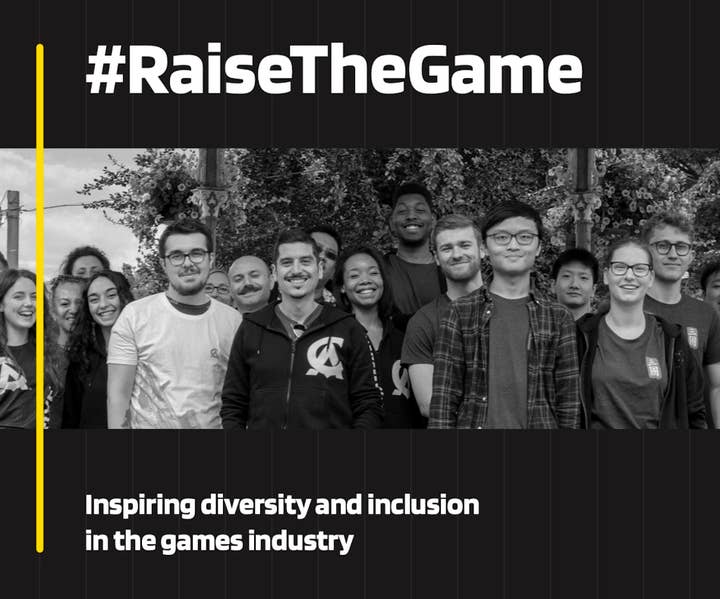The UK games industry is still overwhelmingly young, white, and male
But on the heels of its first UK Games Industry Census, UKIE launches initiative to improve diversity
UKIE has released the results of its first-ever UK Games Industry Census, partnering with the University of Sheffield to survey 3,208 in the UK games industry (around 20% of the overall UK games workforce) and determine the general makeup of the gaming workforce in the country by a number of different demographics.
By gender, the survey found that 70% of game workers in the UK are male, 28% are female, and 2% identify as non-binary or another gender. The percentage of men in the games industry is considerably higher than the national average (which is roughly split 50/50). Women in the industry tend to skew younger, with 33% of those 25 or younger and 34% between ages 26 and 30 identifying as women. Additionally, 21% identified as LGBTQ+ individuals -- a much higher proportion than the national percentage, which is in the single digits.
By age, two-thirds of those in the UK industry are 35 or younger, and only 3% of all those surveyed were over age 50. 54% said they had been in the industry for five years or more, and nearly one-third said they had been in the industry for ten years or more.
The survey found that 10% of all UK games workers were non-white, which is a slightly higher percentage than that of the national working population. Broken down, 2% of respondents were black, 6% were Asian, 2% said they were "mixed or multiple," and 1% specified another race.
From the breakdowns of gender, age, and race, the survey looked at certain trends in games jobs and roles. For example, the most evenly-balanced roles in games by gender were localization roles (54% male), writing (55% male), project management (58% male), and business operations (58% male). No roles had more women reported than men, and some roles such as programming (87% male) and IT (83% male) had a very high percentage of men.
Additionally, 79% of those in director or CEO roles managing over 25 employees were men, and 77% in those same roles over one to 24 people were men. 80% of leads, 80% of seniors, and 70% of those in managerial roles were men.
Looking to race, 94% of those holding director or CEO roles supervising more than 25 people were white, as were 92% of those same roles overseeing one to 24 people and 94% of managerial roles.
Another segment of the survey looked at health, finding that 21% of those surveyed live with a chronic health condition, and 31% have either depression, anxiety, or both. In fact, one-fourth of the UK games industry reported dealing with anxiety, and those in more junior roles, women, and LGBTQ+ individuals were more likely to declare higher rates of both depression and anxiety.
Finally, on the issue of work weeks, nearly three-fourth of all respondents said they worked a standard full-time working week between 33 and 40 hours normally. Only 3.5% said that they regularly worked 51 hours a week or more.
Along with the survey, UKIE has announced its "Raise the Game" pledge to improve diversity and inclusion in the industry, aiming to sign up 200 UK game businesses covering 50% of the country's games workforce by 2021. The pledge is being led by five founding members: EA, Facebook, Jagex, King, and Microsoft.
Supporters will pledge to abide by three pillars with the goal of improving diversity, and agree to provide information on how they did at supporting those pillars every year. They are:
- Creating a diverse workforce by recruiting as fairly and as widely as possible
- Shaping inclusive and welcoming places to work, by educating and inspiring people to take more personal responsibility for fostering and promoting diversity and inclusion
- Reflecting greater diversity within games at every level from game design and development through to marketing and community engagement.
You can find the full results of the survey at the UKIE website. UKIE plans to conduct the study every two years.
For the record: This article was amended post-publication to add an additional stat on LGBTQ+ individuals.

